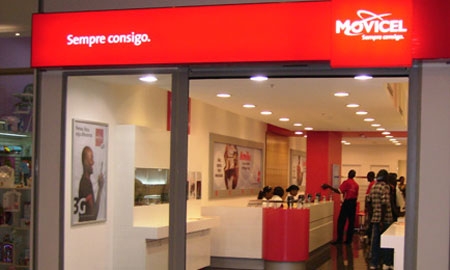Telecommunications in Angola is big business and still shows tremendous growth potential. The second largest cellular phone company behind Unitel in this country’s current duopoly is Movicel, who is gearing up for new incoming competition from a third operator in various ways.
By changing its platform from CDMA to GSM – the platform Unitel already employs – the company will make migrating to Movicel from Unitel easier. The GSM system is already up and running in the capital and in Benguela Province.
Movicel is also investing the princely sum of $100 million over the year in its telecommunication network infrastructure, and is opening new stores and cafés in the provinces of Benguela, Bie, Huambo, Huila, Lunda Norte, Namibe, Uige and Zaire. This comes after having increased capacity in Luanda and Cabinda, the country’s oil region.
Angola Telecom created Movicel in 2003 as its mobile operator and six years later, Movicel underwent a corporate restructuring in which the government sold off 80% of its shares in what was one of Angola’s largest post-war privatizations.
Today, with a subscriber base of more than 3 million, Movicel is targeting the lower end in a move to win new market share, offering entry-level mobile handsets.
Here, Carlos Brito, CEO of Movicel since late 2009, assesses the company’s strategies and the state of telecommunications in Angola.
‘TELECOM IS NOT A LUXURY ANYMORE BUT AN ESSENTIAL ITEM. WE WILL ALWAYS HAVE THAT IN MIND’
‘WE ARE TARGETING THE IMPROVEMENT OF QUALITY OF OUR SERVICES, AS WELL AS IMPROVED TERRITORIAL COVERAGE OF OUR NETWORK’
‘ANGOLA IS A FIELD WITH LOTS OF OPPORTUNITIES AND I BELIEVE THAT WILL INCREASE VERY RAPIDLY’ |
What can you tell us about Movicel’s transition from CDMA to GSM/UMTS to better compete with Unitel?We have an obligation to return to the government the frequencies that we currently use on the CDMA technology. GSM’s implementation is a mandatory aspect for us. We will assure our customers a smooth transition and that they will be able to keep their current number without having to face any particular major difficulty.
We will be bringing to Angola the best telecommunications solution the world offers today.
How is Movicel approaching the different segments of the market and how you plan to cover them?Nowadays, telecommunications is not a luxury anymore but an essential item. We will always have that in mind.
We have clear market segmentation. For example, we have specific offers for companies and other services oriented to the young segment, which represents a very high percentage in Angola. We will do our best to reach them all.
Telecommunication services particularly in African nations are very significant and have a major role to play in connecting people and bringing economic growth. It can represent from 10% to 20% of the GDP, which is a bigger percentage than in America for instance, meaning that the investments made in this sector will certainly have a very big social impact in the lives of people and on the economy.
What roles do voice and data services play in the Angolan market?Data business is a very important challenge. Africa and Angola are still voice-centric markets but I believe in the near future that will change and data will become a very important offer for the telecom business as well.
For now what I can say is that we are very focused in bringing our data services to a quality level up to the required demand from the clients.
What are your priorities for the next four or five years in terms of business development? We are targeting the improvement of quality of our services, as well as improved territorial coverage of our network.
We will put a greater focus on data services because we feel that the country and its people are in need of more and newer opportunities. The data market will dramatically grow in the next years and will cause a tremendous change in Angola, in commercial transactions and people’s lives.
Also, I believe that within a few years we will have 100% of mobile penetration. That is the reason why we are very much focused in investing in infrastructures that allow us to achieve this goal.
What are the opportunities and advantages of doing business in Angola?Angola is a field with lots of opportunities and I believe that will increase very rapidly. Today it is easier to do business in Angola since communication and other infrastructures were built to enhance the level of opportunities offered by this country.
Angola welcomes those who bring initiatives of investment and cooperation with the local people in order to contribute to the development to the country.

0 COMMENTS